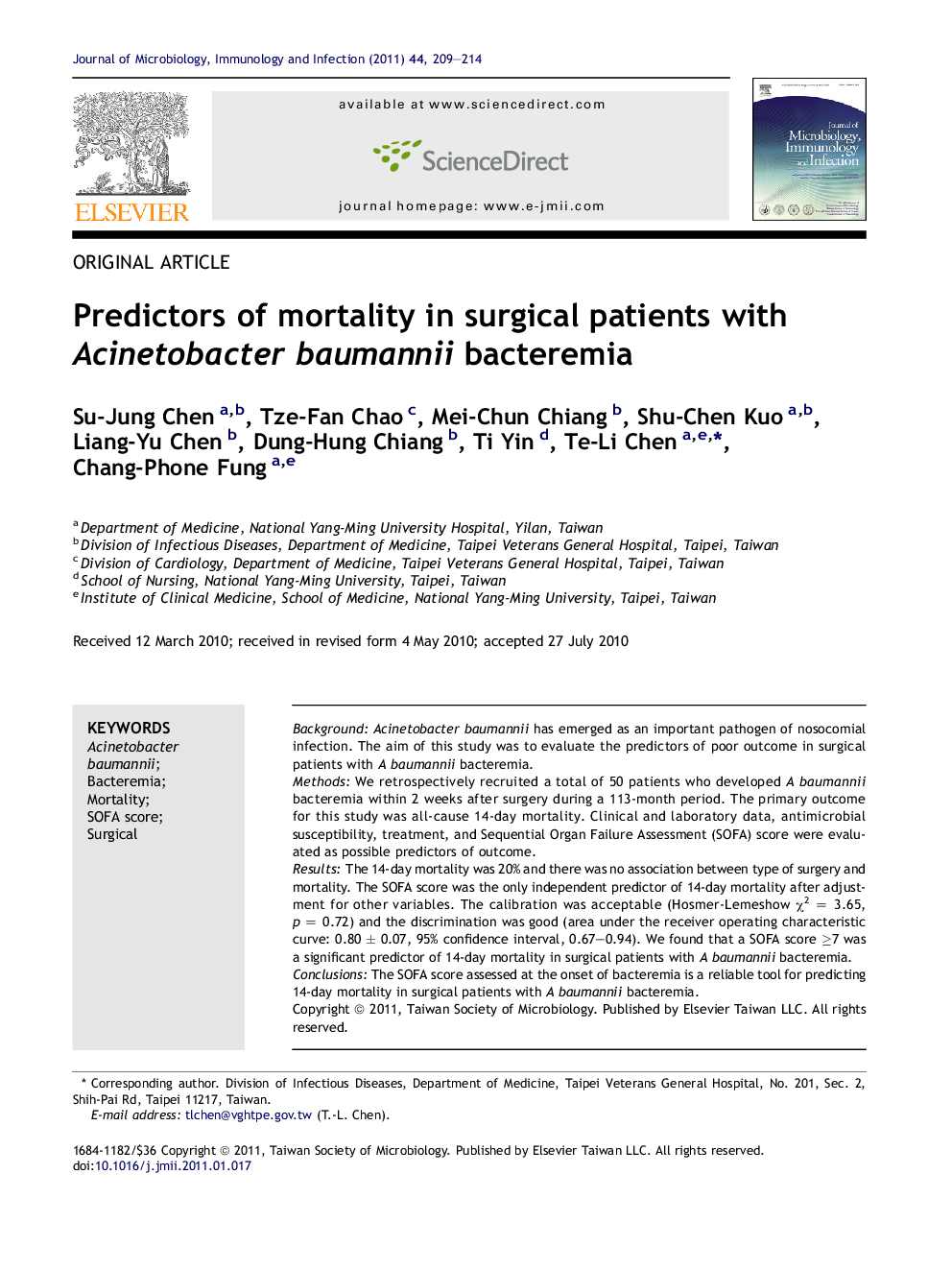| Article ID | Journal | Published Year | Pages | File Type |
|---|---|---|---|---|
| 3378394 | Journal of Microbiology, Immunology and Infection | 2011 | 6 Pages |
BackgroundAcinetobacter baumannii has emerged as an important pathogen of nosocomial infection. The aim of this study was to evaluate the predictors of poor outcome in surgical patients with A baumannii bacteremia.MethodsWe retrospectively recruited a total of 50 patients who developed A baumannii bacteremia within 2 weeks after surgery during a 113-month period. The primary outcome for this study was all-cause 14-day mortality. Clinical and laboratory data, antimicrobial susceptibility, treatment, and Sequential Organ Failure Assessment (SOFA) score were evaluated as possible predictors of outcome.ResultsThe 14-day mortality was 20% and there was no association between type of surgery and mortality. The SOFA score was the only independent predictor of 14-day mortality after adjustment for other variables. The calibration was acceptable (Hosmer-Lemeshow χ2 = 3.65, p = 0.72) and the discrimination was good (area under the receiver operating characteristic curve: 0.80 ± 0.07, 95% confidence interval, 0.67–0.94). We found that a SOFA score ≥7 was a significant predictor of 14-day mortality in surgical patients with A baumannii bacteremia.ConclusionsThe SOFA score assessed at the onset of bacteremia is a reliable tool for predicting 14-day mortality in surgical patients with A baumannii bacteremia.
